
In an earlier piece, we have seen how enormously profitable D’Mart is. This financial performance of the offline retailer is in sharp contrast with that of online retailers like Flipkart and Snapdeal which have notched up such heavy losses that they are now tottering on the brink of insolvency.
In theory, online retailers ought to have higher profit margins than their brick-n-mortar counterparts because they are spared of the high costs of rentals for shops and salaries for salespersons.
Also, if one follows the ‘market place’ model (which all online retailers in India do), then even the working capital costs of stocking inventory are not there.
Obsession with ‘GMV’
For some reason, online retailers have come to believe that the only way to show supremacy in the market place is by increasing the ‘GMV’ (gross merchandise value) of the products sold.
In a desperate game of one-upmanship, they organized events like ‘Big Billion Day sale’, ‘Happy Republic Day Sale’ etc in which extravagant discounts were offered to lure shoppers.
Obsession with ‘vanity’ metrics proves fatal for Stayzilla
Stayzilla is the latest e-com venture to fall victim to the obsession with vanity factors like GMV.
The goodbye letter written by Yogendra Vasupal, the young and dynamic founder of stayzilla, makes for tearful reading.
“I would like to announce today that we would be bringing to a halt the operations of Stayzilla,” Vasupal said in a grim tone.
He explained that in the early days of the venture, the focus was on the traditional aspects of running a business and things were chugging along smoothly.
“The initial 7 years were all about having negative working capital, positive cash flow and a sustained ability to fund our own growth. Those were the only metrics we tracked,” he said.
Unfortunately, somewhere down the line, the obsession to be the biggest home stay venture took over:
“I can honestly state that somewhere I lost my path. I started treasuring GMV, room-nights and other ‘vanity’ metrics instead of the fundamentals of cash flow and working capital,” Vasupal lamented.
“GMV makes no sense and is a dangerous path to take”: Experts
Ironically, some in the online sector had realized that the obsession with GMV and other ‘vanity’ metrics would lead all ventures into imminent destruction.
“GMV is complete nonsense and has been used by certain players to justify their valuations,” Nils Chrestin of Jabong thundered.
“That is a very dangerous path to be on if you want to build a sustainable, professionally managed company …. The more creative way of gaining market share is to focus on having best selection and a great customer experience ….. That is what we are focused on … a sustainable long-term business,” he added.
Other luminaries like the founders like Pepperfry and Firstcry explained why they are opposed to the GMV race.
Unfortunately, the words of wisdom of Nils Chrestin and the others fell on deaf ears.
End of the road for Snapdeal?
According to reports, Snapdeal has only $100 million (Rs. 650 crore) in its bank account.
Snapdeal recently sacked about 600 employees and this has helped it to reduce the cash burn from USD 30 million per month to Rs. USD 10 million per month.
Snapdeal to lay off 600 people over next few days.https://t.co/HTCwbEBoDL pic.twitter.com/ZhJxejPAjD
— BloombergQuint (@BloombergQuint) February 23, 2017
Snapdeal’s promoters admitted to committing “strategic mistakes” and graciously announced that they would take a 100% pay cut.
Snapdeal’s Kunal Bahl admits to mistakes, to take 100% salary cut https://t.co/K32en9KggU
— Livemint (@livemint) February 22, 2017
However, this did not arouse much sympathy amongst the intelligentsia with some claiming that the founders have already pocketed tens of crore of rupees in exorbitant and undeserved salaries.
Salary of 40 Cr on investor's money!!! Kudos to #snapdeal founders for finding such investors!@livemint https://t.co/ElZzNWXHu9
— Prakash Singh (@prakashsingh1) February 23, 2017
So @Flipkart wants level playing field with @amazonIN ? Start by cutting top exec salaries by 80%. Overpaid underperforming crybabies. pic.twitter.com/xhZltL4Vop
— Mahesh Murthy (@maheshmurthy) February 10, 2017
@maheshmurthy @abhaykamath @Flipkart @amazonIN those salaries are higher than series B funding
— Siddarth Pai (@siddarthpaim) February 10, 2017
Investment of Rs. 11,375 crore down the drain?
If Snapdeal does go under, an investment of USD 1.75 billion (Rs. 11,375 crore) made by elite investors like Softbank, Kalaari Capital, Temasek, Alibaba Group, eBay and others will go down the drain.
Radhakishan Damani avoids juvenile temptations
In sharp contrast to the attitude of venture capitalists who behaved like drunken sailors in encouraging the promoters to burn cash, Rashakishan Damani kept steady on the conservative path of growing the business in a slow and steady pace after ensuring that the profitability is not compromised.
“We do not open a new store, even if our finances allow us to, unless we are sure we can run it as efficiently as our existing stores,” Neville Noronha, the CEO of D’Mart said, giving a glimpse of the conservative business approach.
D-Mart has also followed the strategy of opening stocks in the suburbs in the metros and in tier II and tier III cities. This keeps the operational costs low.
“D-Mart is the first retailer to cross the billion dollar mark profitably,” Santosh Verma of IDFC Capital said with admiration in his voice.
The results of Radhakishan Damani’s conservative approach is here for us to see. The IPO is slated to be a blockbuster success even while its rivals are wondering where their next meal will come from.
Unbelievable rush for D Mart IPO….from what i hear is that HNI category will be subscribed 300x
— Darshan Mehta (@darshanetnow) March 3, 2017
Understandably, Shankar Shankar is impressed and has heaped rich praise on the savvy Billionaire:
Radha Kishan 's success is the result of running a business for profit / cash, not vanity metrics like market cap, and other nonsense
— Shankar Sharma (@1shankarsharma) March 3, 2017
I have nothing but pure admiration and respect for friend Radha Kishan Damani for creating such a terrific business in retail. Kudos RK!!
— Shankar Sharma (@1shankarsharma) March 3, 2017
Conclusion
The combined wisdom of Radhakishan Damani and Shankar Sharma makes it clear that all investment proposals must be evaluated on the traditional parameters of free cash flows, valuations etc. Anyone who strays from the beaten path and attempts to be adventurous stands a grave risk of getting lost!

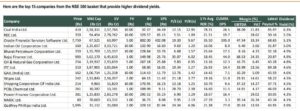
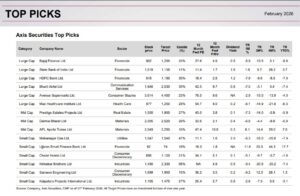
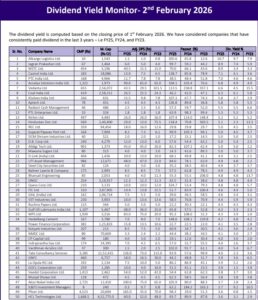

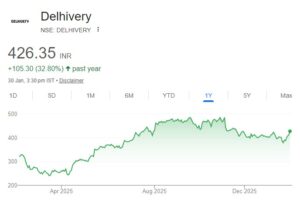
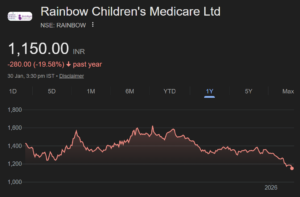
D Mart is an ideal model for the Indian middle class… Especially the rations and grosery is of a good quality and very reasonably priced…as compared to the shops…Hats off to Mr Damania… Hi
Good balanced article after a long time without using any superlative wording. Crisp, useful and up to the point – hope to see more this kind of articles.
Hype is being created by his fellows and friends .This may be good company but due to hype unreasonable premium is being taken.But still it will open at premium to IPO price but my fingers are crossed for those who may buy in secondary market .Reliance will be biggest player in Retail after 5 Years and other players will be fighting for survival like in telecom.
I beg to differ Kharb Ji, as I have seen multiple Reliance stores being shut down after being mismanaged. Everyone except the store managers knew this (mismanagement). Reliance also shut down it’s milk business in several cities. I see Reliance closing it’s retail business in next 5 years.
I will say in the next few years Retail will be hived off as a separate company and its shares quoted in the market. Existing RIL shareholders will get shares of Retail. But what a “jack of all trades” company this is. Its businesses range from Textiles to petrochemicals, polymers, Oil Refining, Fuel retailing, oil and gas E & P, shipping (owning and chartering), domestic trading, international trading, grocery retailing, vegetables retailing, footwear, jewellery, lifestyle retailing, telecom, hospitals, treasury management, ship building, defence manufacturing, power plants, power distribution, power trading, cement manufacturing, FM Radio Channels, mobile phones, Forbes India, CNBCTV18, CNNIBN, Viacom18, Firstpost, Moneycontrol, TV18, TV18 Broadcast, a host of startup companies, and the list may be half complete….how the hell can such a company give value to its shareholders I fail to understand. Where is the focus? And how can any analyst predict cash flows of such a muddled up company? And the numbers the company is projecting prospects of Jio, seems imaginary. And what will happen if BJP does get majority in 2019? I will advise anyone to stay away from this entire group. Almost all the world’s top gurus advise you should invest in a stock only if the business is understandable and simple. This one is far, far from it.
Agree with your points. Recently they sold off the cement business to Birla I think. Beats me what this company is up to.
I view RIL to demerge two big formats as two separate listed companies,Rel Jio and Reliance retail.If I am correct Mukesh has three childs,,so nice to have three big companies.
Just awesome & plethora of hilarious punches “like drunken sailors …” ROFL
Do take a look at how Big Brother’s retail venture operates… Sahakari Bhandar.. a 50 year old brand.
Tightly run.
SNAPCHAT’s Post IPO Market Performance :
http://www.cnbc.com/2017/03/02/snapchat-snap-open-trading-price-stock-ipo-first-day.html
Snap closes up 44% after rollicking IPO
Anita Balakrishnan | @MsABalakrishnan
Thursday, 2 Mar 2017 | 4:09 PM ET
CNBC.com
ANY EXPERT ANALYSIS & COMMENTS ABOUT ITS POST LISTING SUCCESS ????
Ajay
this proves one thing – Americans are smarter than Indians. No wonder they dominate Indians in Chennai.
Kudos to Damani ji!!!
Lets hope this euphoria of ‘Damani ka IPO’ should not get busted on listing day.